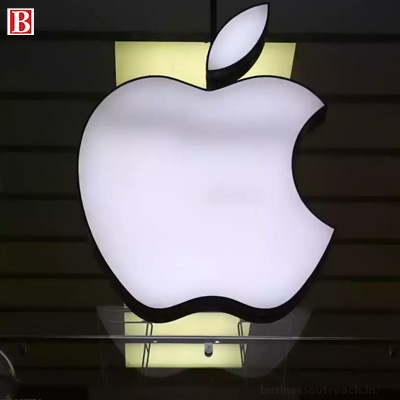The complaint was filed after the Competition Commission of India (CCI) began investigating claims that Apple is harming competition by forcing app developers to use its proprietary system, which can charge up to 30% commissions on in-app purchases.
According to a filing seen by Reuters, Apple Inc has asked India’s antitrust watchdog to dismiss a case alleging market power abuse in the apps market, claiming it is too small a player in the South Asian country where Google is dominant.
The complaint was filed after the Competition Commission of India (CCI) began investigating claims that Apple is harming competition by forcing app developers to use its proprietary system, which can charge up to 30% commissions on in-app purchases.

In its filing to the CCI, Apple denied the allegations and stated that its market share in India is “insignificant” at 0-5 percent, whereas Google controls 90-100 percent of the market because its Android operating system powers most other smartphones.
“In India, Apple is not the market leader… There can be no abuse without dominance “Apple stated this in a November 16 submission signed by Kyle Andeer, the company’s Chief Compliance Officer.
It went on to say, “It has already been established that Google is the dominant player in India.”
A request for comment from Apple and the CCI was not returned. When asked about Apple’s claims in the filing, a spokesperson for Alphabet Inc’s Google declined to comment.
The case’s complainant, a little-known non-profit organization called “Together We Fight Society,” claimed that Apple’s iOS dominates the market for non-licensed mobile operating systems.
In its filing, Apple rebutted this, claiming that the entire smartphone market – which includes licensable systems like Android – should be considered.
In its CCI submission, Apple also called the Indian complaint a “proxy filing,” saying the complainant was “likely acting in concert with parties with whom Apple has ongoing commercial and contractual disputes globally and/or who have complained to other regulators.”
In its submission, the American tech company provided no evidence to back up its claim. Apple’s remark, according to the non-profit, was “made to prejudice the mind” of the CCI “without any iota of proof,” according to Reuters.
The CCI will review Apple’s response to the allegations in the coming weeks and may order a more thorough investigation or dismiss the case entirely if it finds no merit in it. The findings of CCI investigations are not made public.
Following concerns from Indian startups last year, the CCI launched a separate investigation into Google’s in-app payment system as part of a broader investigation into the company.
According to Counterpoint Research, Apple’s iOS-powered about 2% of India’s 520 million smartphones as of end-2020, with the rest using Android. However, Apple’s smartphone base in the country has more than doubled in the last five years.
A WORLDWIDE PROBLEM
Similar allegations have been leveled against Apple in other parts of the world. It is involved in a legal battle with Epic Games, the creator of “Fornite,” in the United States, and South Korea became the first country to prohibit dominant app store operators from forcing developers to use their payment systems this year.
Regulators in the European Union launched an investigation into Apple’s in-app fees for the distribution of paid digital content and other restrictions last year https://reut.rs/38nEVZZ.
Apple and Google claim that their fees cover the security and marketing benefits provided by their app stores.
Apple argued in its CCI filing that the in-app commissions it charges are “not unfair or excessive” and have decreased over time and that it charges smaller developers lower rates.
“Only a few large developers, many of whom are multibillion-dollar conglomerates, pay the headline rate of 30%,” Apple said.
“Apple’s commissions are comparable to or higher than those charged by competitors. Google, in particular, has imposed a 30% commission on its app “It said, “store.”















